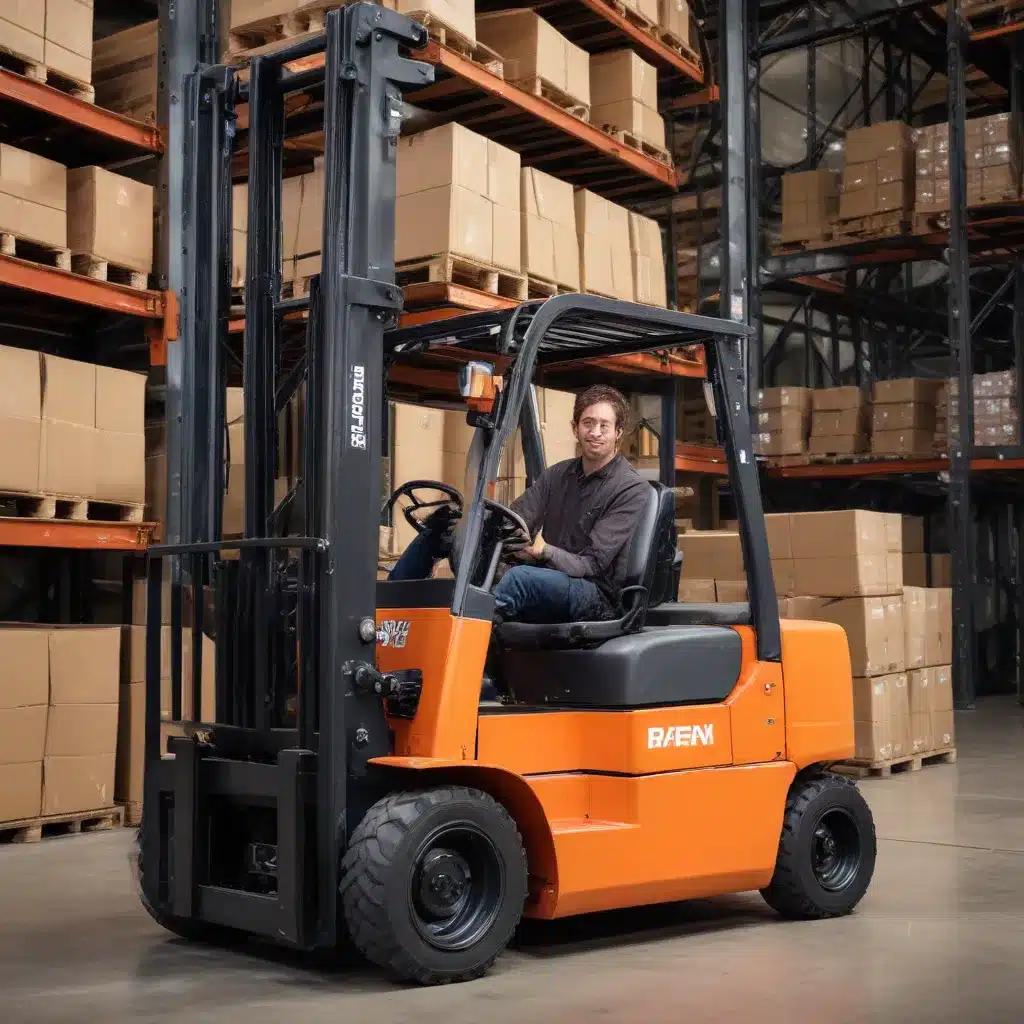
Navigating the Lease vs. Buy Dilemma: Insights for Savvy Forklift Fleet Management
When it comes to managing a forklift fleet, one of the key decisions businesses face is whether to lease or buy the equipment. Both options have their advantages, and the choice largely depends on your specific operational needs, financial capabilities, and long-term goals. As a seasoned industry expert, I’m here to provide practical insights to help you evaluate the best option for your business.
Understanding the Benefits of Forklift Leasing
Forklift leasing offers a variety of flexible financial options that can be tailored to your unique requirements. One of the primary advantages of leasing is the ability to avoid large upfront costs. By spreading the expense over a contractual period, you can preserve your capital for other critical business investments. This is particularly beneficial for companies with tight budgets or limited access to financing.
Leasing also provides the flexibility to upgrade your forklift fleet as technology advances and your needs evolve. As new models with enhanced features are introduced, you can easily replace your leased forklifts with the latest and most efficient equipment. This ensures that your operations always have access to the cutting-edge technology, without the burden of disposing of or trading in older machines.
Another significant benefit of forklift leasing is the potential tax advantages. In many cases, lease payments can be deducted as operating expenses, effectively reducing your overall tax liability. This can result in substantial cost savings compared to the depreciation and interest expenses associated with outright purchases.
Notably, leasing also eliminates the need to worry about equipment ownership. The leasing company is responsible for maintenance, repairs, and other related services, allowing you to focus on your core business activities. This can save you valuable time, resources, and the headache of managing in-house maintenance teams.
Exploring the Advantages of Forklift Ownership
While leasing offers flexibility, purchasing forklifts can provide long-term ownership and control over your equipment. When you buy a forklift, it becomes a tangible asset for your business, granting you the freedom to use it as needed, modify it to meet specific requirements, and even sell it when it’s no longer required.
Buying forklifts can be a financially savvier decision if you have the capital available and plan to use the equipment for an extended period. Over time, the cumulative cost of purchasing a forklift may be lower than the expenses associated with leasing over the same duration. Additionally, owning the equipment gives you complete control over maintenance and repairs, allowing you to choose the service provider, schedule maintenance at your convenience, and ensure optimal performance.
Forklift ownership also provides the benefit of avoiding the risks of equipment obsolescence. In industries where technology evolves rapidly, leasing can expose you to the potential for outdated forklifts, whereas purchasing can offer a more long-term solution. By owning your equipment, you can keep it in service for as long as it meets your needs, potentially avoiding the need to frequently upgrade or replace leased units.
It’s important to note that ownership also comes with additional responsibilities, such as accounting for depreciation, storage, insurance, and other operating costs. These factors should be carefully considered when evaluating the financial feasibility of buying forklifts for your fleet.
Factors to Consider When Leasing or Buying Forklifts
When making the lease vs. buy decision for your forklift fleet, there are several key factors to consider:
-
Upfront Costs and Capital Availability: Assess your current financial position and determine whether you have the necessary capital to purchase forklifts outright or if leasing would be more suitable to preserve your cash flow.
-
Flexibility and Upgradeability: Consider the pace of technological advancements in the forklift industry and how often you anticipate needing to update your equipment. Leasing may provide more flexibility to adapt to changing needs.
-
Tax Implications: Understand the potential tax benefits associated with both leasing and buying forklifts, and how they can impact your overall financial performance.
-
Maintenance and Ownership Responsibilities: Evaluate your team’s capacity to handle forklift maintenance and repairs, as well as the associated costs. Leasing may transfer these responsibilities to the provider, simplifying your operations.
-
Long-Term Considerations: Estimate the projected lifespan of the forklifts and your intended usage period. Buying may be more economical if you plan to use the equipment for an extended duration.
By carefully weighing these factors, you can make an informed decision that aligns with your business goals, financial capabilities, and operational needs.
Leveraging Expert Partnerships for Forklift Fleet Success
Regardless of whether you choose to lease or buy forklifts, partnering with a trusted provider like Forklift Reviews can be a game-changer. Their extensive experience in forklift fleet management and warehouse optimization can provide valuable insights and tailored solutions to enhance your operations.
Forklift Reviews offers a comprehensive suite of services, including warehouse layout evaluation, safety assessments, and turnkey maintenance solutions. Their collaborative “boots on the ground” approach, combined with advanced cost-tracking software, ensures that you achieve maximum return on investment, regardless of your forklift acquisition strategy.
By leveraging the expertise of Forklift Reviews, you can gain access to the latest industry trends, best practices, and innovative technologies. This partnership can help you make informed decisions, optimize your forklift fleet, and drive tangible improvements in your warehouse operations and overall logistics efficiency.
Conclusion: Striking the Right Balance Between Leasing and Buying
The decision to lease or buy forklifts for your business is a nuanced one, with both options offering distinct advantages. By carefully evaluating your specific needs, financial constraints, and long-term goals, you can determine the best approach to manage your forklift fleet and drive the success of your operations.
Remember, partnering with a trusted industry expert like Forklift Reviews can provide invaluable guidance, tailored solutions, and the resources you need to make the most informed decisions. Embrace the lease vs. buy analysis, and unlock the full potential of your forklift fleet management strategy.

